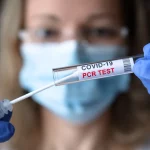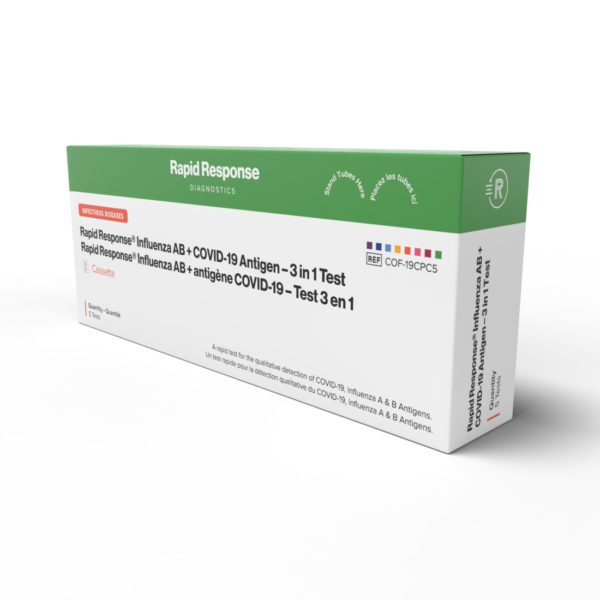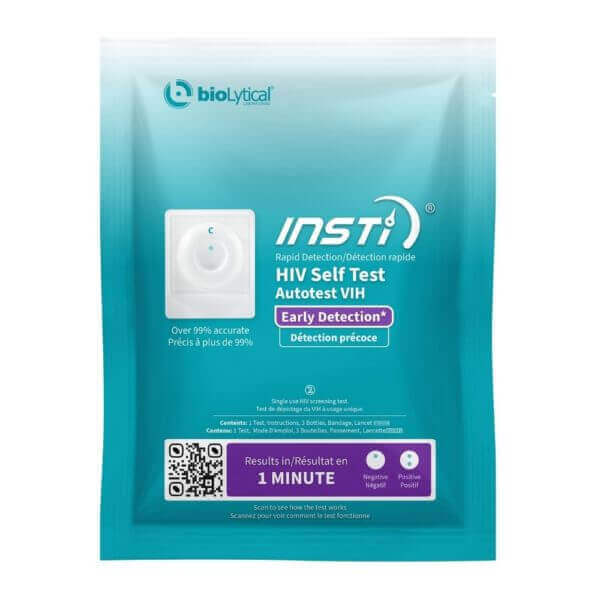Vitamin D, often referred to as the ‘sunshine vitamin,’ contributes to different bodily processes, from bone health to immune system support.
But how do you know if you have enough of this nutrient?
Vitamin D levels: What’s normal?
The normal range for vitamin D levels can be determined through blood tests and is crucial for maintaining overall health and preventing certain conditions.
Adequate levels of vitamin D help in promoting and improving bone health, as well as the health of your muscles, nerves, brain and immune system.
How much vitamin D do you need?
Your age influences how much vitamin D you need. Here’s the recommended daily amounts of vitamin D according to the Office of Dietary Supplements (ODS):
- 0-12 months old: 10 mcg or 400 IU
- 1-70 years old: 15 mcg or 600 IU
- Over 70 years old: 20 mcg or 800 IU
- Pregnant or breastfeeding individuals: 15 mcg or 600 IU
If you take a blood test for vitamin D, here’s what your results mean:
- Low vitamin D level: Less than 30 nmol/L or 12 ng/mL
- Adequate vitamin D level: 50 nmol/L or 20 ng/mL and above
- High vitamin D level: 125 nmol/L or 50 ng/mL and above
Signs and symptoms of Vitamin D deficiency
The severity and presence of symptoms may vary from person to person, and some may not experience any noticeable signs of deficiency.
If you’re vitamin D deficient, here are the noticeable signs and symptoms that you must look out for:
- Bone and muscle weakness
- Body aches, especially in the lower back, hips and legs
- Fatigue
- Frequent infections
- Hair loss
- Depression
- Impaired wound healing
- Decrease in overall cognitive function
If you suspect that you may be deficient in vitamin D, it’s recommended to consult with a healthcare professional who can order a blood test to measure your vitamin D levels.
They can guide you on appropriate supplementation or lifestyle changes to increase your vitamin D intake.
Vitamin D deficiency and related health conditions
Insufficient levels of vitamin D have been linked to various health conditions and complications.
If you don’t have enough vitamin D, you’re more prone to developing health issues, such as:
- Risk of fractures
- Rickets
- Osteomalacia
- Osteoporosis
What can cause a Vitamin D deficiency?
Several factors can cause a vitamin D deficiency, such as the environment, your lifestyle and certain medical conditions.

Here are the most common causes.
Reduced sunlight exposure
Sunlight is a key source of vitamin D as it triggers the synthesis of this essential nutrient in the body. However, some factors can limit your sunlight exposure, which include:
- Living in colder climates
- Spending most of the time indoors
- Wearing sunscreen can limit sunlight exposure
Inadequate dietary intake
Certain dietary choices, such as veganism, can also lead to inadequate vitamin D intake. This is because most of the natural vitamin D sources come from animals.
Cystic fibrosis, Crohn’s disease and Celiac disease
Cystic fibrosis, Crohn’s disease and Celiac disease are medical conditions that can contribute to a deficiency in vitamin D. These conditions affect the absorption and utilization of nutrients in the body, including vitamin D.
Cystic fibrosis is a genetic disorder that primarily affects the lungs and digestive system. Those with cystic fibrosis often have difficulty absorbing fat-soluble vitamins, such as vitamin D, due to pancreatic insufficiency.
Crohn’s disease is an inflammatory bowel disease that can lead to malabsorption of nutrients, including vitamin D.
Celiac disease is an autoimmune disorder that damages the small intestine and impairs vitamin D absorption.
Weight loss surgery
Weight loss surgery, such as the following, can affect the body’s ability to absorb nutrients, including vitamin D:
- Gastric bypass
- Gastric sleeve
- Gastric band
Kidney disease
The kidneys help in converting inactive vitamin D into its active form, which is necessary for optimal health. However, those with kidney disease may have a harder time metabolizing and activating vitamin D, which can lead to vitamin D deficiency. Aside from that, kidney disease can also cause increased urinary loss of vitamin D, further worsening the deficiency.
How to get more Vitamin D
There are three main ways to increase your vitamin D levels.
- Sunlight
- Diet
- Supplements
Sunshine
Sunlight is the primary source of vitamin D, as the skin produces it when exposed to the sun’s ultraviolet B (UVB) rays.
For sufficient vitamin D levels, it’s recommended to spend about 10 to 30 minutes in the sun, two to three times a week.
Keep in mind that the amount of sun exposure needed varies depending on factors such as:
- Location
- Time of day
- Skin type
Practice sun safety by avoiding excessive sun exposure, especially during peak hours when the sun’s rays are strongest. Wear sunscreen, protective clothing and sunglasses to prevent sunburn and reduce the risk of skin damage.
Diet
While sunlight is the primary source of vitamin D, certain foods can also help boost its levels in the body, including:
- Fatty fish, like salmon and mackerel
- Fortified dairy products, like milk and yogurt
- Fortified cereals
- Orange juice
- Egg yolks
- Mushrooms
Supplements
If you’re unable to get enough vitamin D from sunlight or food sources, supplements can help bridge the gap. However, it should complement a healthy lifestyle and not replace a balanced diet and adequate sunlight exposure.
Vitamin D supplements are available in various forms, including capsules, tablets and liquid drops, with the dosage depending on these factors:
- Current vitamin D levels
- Age
- Overall health
Follow the recommended dosage instructions provided on the supplement packaging or as advised by your healthcare professional.
Regular monitoring of vitamin D levels through blood tests is also recommended to ensure optimal levels are maintained. Remember, supplementation should
Vitamin D toxicity
While toxicity from excessive sun exposure or dietary sources alone is rare, you’re more likely to develop vitamin D toxicity if you take high-strength vitamin D supplements in excess.
While vitamin D is essential for your health, too much of it can have adverse effects.
Symptoms of vitamin D toxicity may include:
- Nausea
- Vomiting
- Poor appetite
- Constipation
- Weakness
- Weight loss
In severe cases, it can cause kidney damage and high levels of calcium in the blood, which can lead to:
- Confusion
- Heart rhythm disturbances
- Comatose
If you suspect you may be experiencing symptoms of vitamin D toxicity, seek medical attention. Your doctor can evaluate your symptoms, perform a blood test to determine your vitamin D levels and provide appropriate guidance.
At-home vitamin D test kit
These kits allow you to conveniently and accurately assess your vitamin D status without the need for a doctor’s visit or laboratory appointment.
The test kit includes a blood collection device and detailed instructions on how to collect a small blood sample from a finger prick. Using an at-home vitamin D test kit can be beneficial if you’re concerned about your vitamin D status or want to monitor your levels regularly. It provides a convenient way to track vitamin D levels and make informed decisions about supplementation or lifestyle changes.
However, while at-home test kits can provide valuable information, it’s always recommended to consult with a healthcare professional to interpret the results and determine the appropriate course of action.
Key takeaway
The recommended daily amounts of vitamin D vary based on age and life stage, with higher amounts recommended for pregnant or breastfeeding individuals and those aged 71 and above.
Vitamin D deficiency can lead to a range of health conditions, and it is important to be aware of the signs and causes of deficiency.
While it is possible to get vitamin D from sunlight and certain foods, supplements may be necessary in some cases. Consult a healthcare professional before taking any supplements.



















































